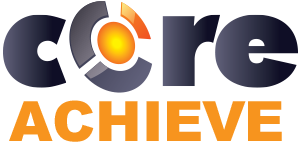Translating Skills from Theory to Practice with an LMS
April, 20 2023
Other posts:
Enhancing Team Dynamics for Effective Group Decision-Making with LMS Integration
Organizations increasingly rely on collaborative efforts to solve complex problems, innovate, and adapt to change, but how do we ensure that collaboration is happening.
Maximizing Small Business Potential with Training Technology
Training technologies can push small businesses ahead of their competitors, but what are the factors that go into choosing the right technology?
Unlocking Employee Potential: The Transformative Benefits of an Interactive Learning Management System (LMS)
Interactive training allows for unlocking employee potential, but how is it done?
Building a Robust Sales Pipeline with Training
Every organization wants a streamlined sales pipeline, but building one requires a series of interlocking activities with one of the most important being training.
Strategies for Adapting In-Person Training to Online Platforms
Online training is one of the most flexible ways of delivering training across organizations, but how do you even begin to adapt in-person training into online?
Taking skills from theory to practice requires almost a whole different type of learning, however, using an LMS may help learners take theory into practice.
Bridging the skills gap between theory and practice can be difficult to achieve in the workplace, with the latter needing more time (and potentially botched projects) than the former. While the best way to develop the practical side is to simply do it, those skills can certainly be boosted by using a Learning Management System (LMS).
Organizations have often used their LMS as a purely theorical training tool—maybe take a couple of courses every year and wrap it up with a quiz at the end—but, if utilized properly, an LMS could help develop the practical side as well.
Using an LMS for Practical Skill Development
As mentioned above, an LMS is typically used for developing the theoretical side skills and the practical skills are left for hands-on, shadowing opportunities. The hands-on training, to be fully clear, cannot be replaced by an LMS currently, but they absolutely can be bolstered by one.
Supporting practical skills with an LMS requires some uses that may be overlooked, like o n-demand and social learning, whenever viewed purely as a vehicle for theory. The examples below are not the only way to help practical learning along, but they are more than enough to start seeing results if implemented.
Personalized Learning
Personalized learning refers to taking a learner (or a sufficiently granular subgroup of learners) and giving them learning directly tailored to their specific situation. In most organizations the theory part of training is broad enough to fit to every member of the organization—hardly useful for the specifics that practical skills demand. Therefore, using personalized learning targeted for practical skills will ensure that whenever those practical skills are developed, the learners have seen them before.
On-demand Learning
On-demand learning is unique to using a system like an LMS, with accessibility at any point being a key factor as it refers to being able to get into and begin training at any time. This accessibility allows learners to directly relate their practical skills to their recent experience, strengthening the connection.
Continuous Learning
Another unique LMS trait, continuous learning ensures that learners will constantly be developing themselves as they are, well, continuously learning more information. This continuation will encourage learners to develop more of their theoretical and practical side.
Measuring Outcomes
An LMS, like CoreAchieve, can constantly track and update learners’ activities and scores while they learn. Using this data in tandem with personalized learning will allow targeted training of any learner’s weaknesses, in either theoretical or practical training.
Microlearning
Microlearning has ties with on-demand learning, as microlearning depends on being able to fit training into a busy schedule. Microlearning is small, bit-sized information that typically can be completed in under five or so minutes, which makes a perfect refresher before putting theory into practice.
Social Learning
Whenever it comes to social learning, an LMS can facilitate it in multiple ways like a discussion board, comments on post, or by scheduling in-person or virtual sessions. Social learning is conducive to bridging the gap as it’ll allow learners to become more comfortable with each other and may promote in-person teamwork.
Realistic Situations
Placing learners into realistic situations helps them relate to the situation and can be an effective tool in any LMS. However, simply relaying a relatable story isn’t all that an LMS could do, with interactions the instructor could craft practical situations without the impact if something goes wrong. Immersing the learners into these situations virtually will help them get used to making those decisions outside of training.
Bridging The Gap
Developing the theory side of skills can be considerably easier than the practical side, especially with tools like an LMS. Yet, an LMS can bridge the two and using many of its systems, can bolster practical skills with more information, connections, and pseudo practice.
Get started with CoreAchieve for free.
Photo by Kostya Klimenko on Vista

Leave comment: